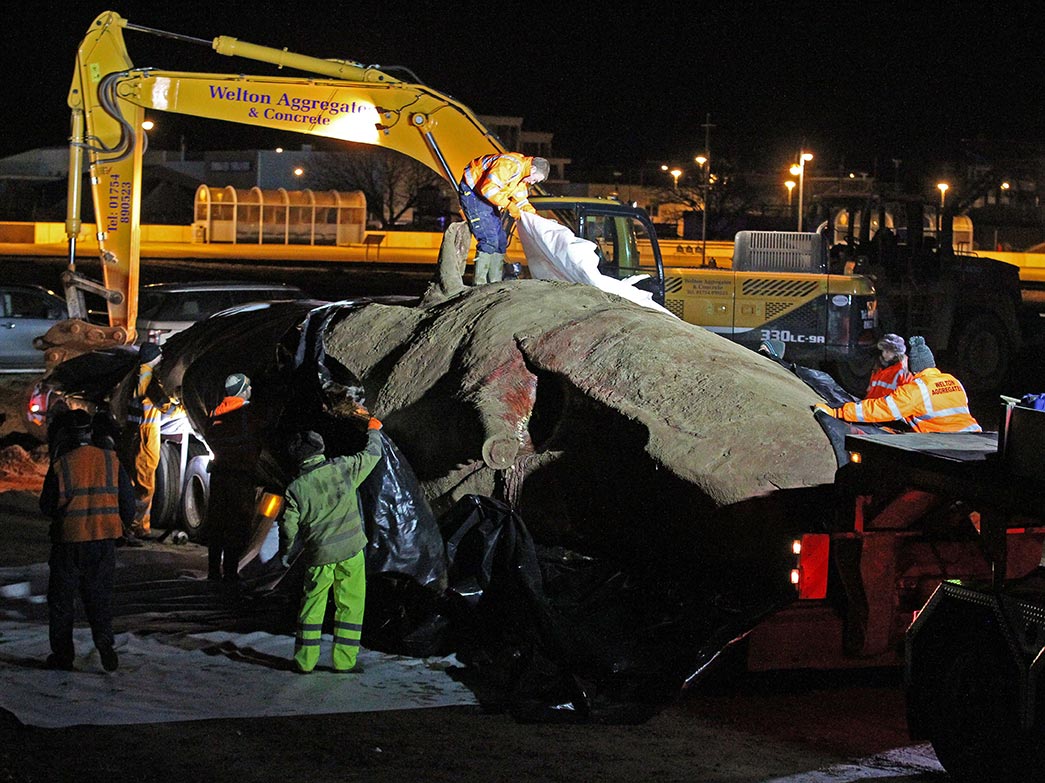Dead whales removed from Skegness beach and taken to landfill sites following five hour operation
'All that you can do is treat them with the utmost respect'

The bodies of three sperm whales which washed up on the Lincolnshire coast have now been removed and taken to landfill sites.
It took five hours and 14 workers to wrap the whales - weighing around 30 tonnes each - in tarpaulin, place them on low loaders and drive them to the sites in Didcot and Sheffield during the early hours of Thursday morning.
Jan Smith, a contractor who led the team, said the operation had gone well, but admitted: “The last one where the flaps had been cut open for autopsy was hard work.”
The whales were discovered on the weekend – one in Skegness and two at Gibraltar Point. The BBC reported a "huge blast of air" was released from one of the whales when marine biologists carried out examinations earlier in the week.
Speaking about the removal, Mr Smith said: “You can’t really plan what you are going to do because you don’t know if they are likely to blow up or something."
“All that you can do is treat them with the utmost respect."
Scientists established that the whales had died after entering shallow waters in the North Sea.
Dr Peter Evans, director of the Sea Watch Foundation, said “this kind of thing happens periodically as sperm whales congregate in social cohesive groups which we call pods and often strand together”.

“They feed principally on squid and what has probably happened is that one or more of the shoals of squid have entered the North Sea from the Atlantic and the whales followed them, fed upon them, and then maybe ran out of food.”
Whales also washed up near Wainfleet, Lincolnshire, on Monday and Hunstanton in Norfolk on Friday. According to the HM coastguard, they are believed to be from the same pod.
Additional reporting by PA
Join our commenting forum
Join thought-provoking conversations, follow other Independent readers and see their replies
Comments